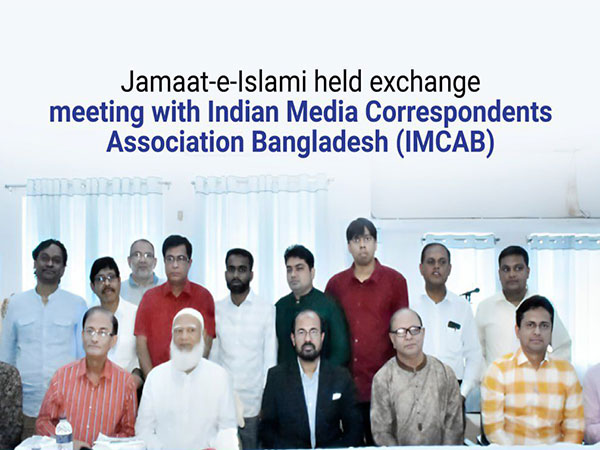Dr Shafiqur Rahman, the Amir of Bangladesh Jamaat-e-Islami, has emphasised the importance of strengthening ties between Bangladesh and India. The Jamaat leader made these comments during a meeting with representatives from the Indian Media Correspondents Association Bangladesh (IMCAB).
“We are mutual neighbours. Neighbours cannot be changed at will, and this is something that neither of us can deny,” Dr Shafiqur was quoted as saying by Daily Manab Zamin, a leading Bangladeshi tabloid when asked about the current state of India-Bangladesh relations.
He reflected on the Jamaat’s historical relations with India, noting that while relations had cooled during Sheikh Hasina’s tenure over the last 15 and a half years, there remains potential for improvement.
“It’s not that the relationship was non-existent, but we hope for a more positive relationship moving forward. We are open-minded in this regard, and we hope India will be as well,” he added.
Responding to questions about India’s relations with Bangladesh, Dr. Shafiqur stated, “Cooperation should be the priority. That is our desire.” He also emphasised that Jamaat does not engage in intentional criticism of India or any other country.
During the meeting, Dr Rahman declared that Jamaat-e-Islami is committed to peace and democracy, asserting that the party has never been involved in destructive activities. “If it is proven that any of our members have engaged in terrorism, we will apologise to the nation and ensure they face the law,” he affirmed.
Dr Rahman was accompanied by Assistant Secretary General and former MP AHM Hamidur Rahman Azad, as well as Central Executive Council Member and Central Publicity and Media Department Secretary Matiur Rahman Akanda during the meeting with journalists.
In a media statement released by Jamaat-e-Islami, the party reiterated its commitment to protecting the homes, resources, and places of worship of all religious communities in Bangladesh. The statement highlighted the Jamaat’s belief in equal rights for all citizens, regardless of religion or majority status.
Dr. Rahman also voiced concerns about the current state of the judiciary, citing instances where judges have been forced into exile, and criticized the lack of a functional Election Commission in the country. He expressed disappointment with the police force, describing it as adversarial towards the people.
Rahman called for the interim government to be given sufficient time to implement necessary reforms and highlighted Jamaat’s focus on supporting victims and their families affected by recent student movements.
“We want to restore peace and order in the country as soon as possible,” the statement continued.
Rahman added, “The constitution, administration, judiciary, and political culture of the country need reform. No divisions should be made based on party or religion. We do not believe in revenge and respect everyone’s rights.”
He discussed recent floods in Bangladesh, attributing the situation primarily to heavy rainfall, but also suggested that better communication between India and Bangladesh regarding water release from dams could have mitigated the impact. He called for improved communication and consultation between upstream and downstream countries to prevent such issues in the future.
Addressing recent protests at the Indian visa center in Dhaka, Dr Rahman disapproved of the actions, urging respect for all involved. He reiterated Jamaat-e-Islami’s commitment to maintaining strong ties with India, stating, “We view India as a close neighbor and believe in the importance of good relations with those who live near us.”-ANI



